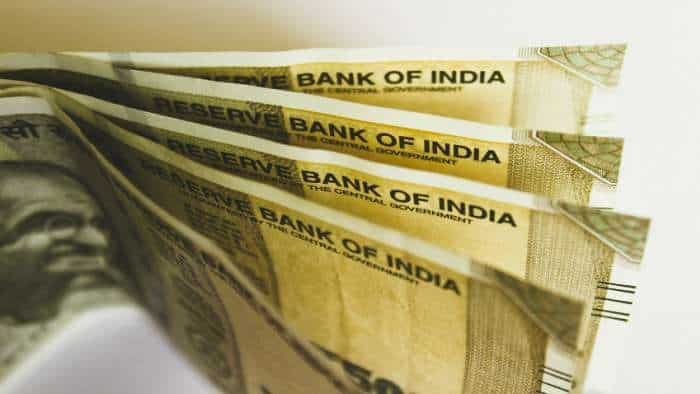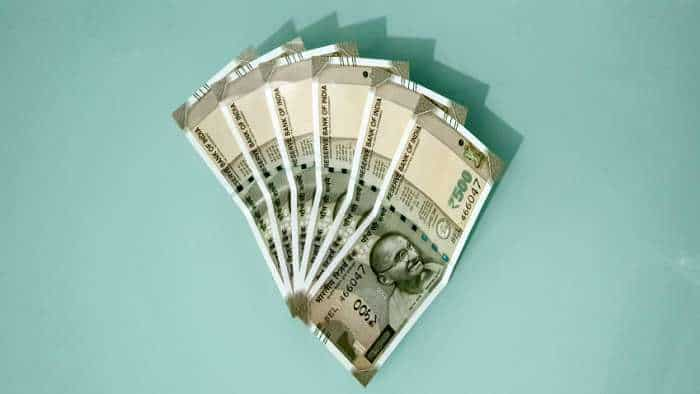As Narendra Modi prepares to take oath as PM, economists expect big bang reforms to continue in Modi 3.0 administration
After a decade of full majority governance, Modi will now run a coalition government, with the Telugu Desam Party and Janata Dal (United) as key partners. Despite being in coalition, experts feel that there won't be much change in the new government's economic agenda.
)
Narendra Modi, elected leader of the National Democratic Alliance (NDA) will take oath as India's prime minister for a historic third term on Sunday evening at 7:15 pm.
After a decade of full majority governance, Modi will now run a coalition government, with the Telugu Desam Party and Janata Dal (United) as key partners. Despite being in coalition, experts feel that there won't be much change in the new government's economic agenda.
Economists believe that Modi 3.0 will not slow down the reforms and to achieve the goal of Vikshit Bharat by 2047, economic reforms and policy reviews need to be continued across multiple sectors, including infrastructure, labour, and manufacturing. These reforms are deemed essential to drive economic growth and development in India.
"The oft-repeated target of becoming a developed country by 2047 requires far-reaching reforms in the factor market, opening up of the economy and infrastructure development and a thrust towards labour intensive manufacturing. In a coalition environment it may not be easy to carry out big bang reforms, but the thrust of incremental reforms should be in this direction," said M Govind Rao, Member, Fourteenth Finance Commission and former Director, National Institute of Public Finance and Policy.
Economists have noted that spending on populist measures will increase because of coalition politics, however, the government will continue with its focus on "Made In India" reforms. Sectors like infrastructure and manufacturing will remain the priority of the government.
"There's likely to be a swerve towards greater populist spending and some commitment of resources to states of alliance partners is also likely. But India's public finances are in relatively robust health and to be augmented by significant reserves from the RBI. India's infrastructure spending will continue apace but perhaps with greater private sector participation. Expenditure on defence modernisation and indigenisation will also undoubtedly continue" said Gautam Sen, retired political economist London School of Economics and author, Former member of the Indo-UK Roundtable and Senior Consultant UNDP.
The full budget, expected to be announced in July, will reflect the economic agenda of Modi 3.0. Many economists expect the Budget will likely see a spurt in welfare and support schemes mainly for farmers and poor. The Budget will indicate the policy priorities for the new coalition government and decide the growth trajectory for the next five years,
On the economic front, economists have cautioned the government about the potential setbacks from a sluggish global economy and geopolitical crisis.
"One constraint remains the sluggish world economy, which could suffer worse setbacks next year, though Indian growth has risen despite it. The unknown is the impact of external shocks of intensifying wars and uncertainty over energy prices" added Sen.
Meanwhile, in a significant boost to the start of Modi 3.0, the Reserve Bank of India on June 7 revised upwards the GDP growth projection for the current fiscal to 7.2 per cent from 7 per cent on rising private consumption and revival of demand in rural areas.
RBI Governor Shaktikanta Das said estimates released by the National Statistical Office (NSO) placed India's real gross domestic product (GDP) growth at 8.2 per cent in 2023-24.
Get Latest Business News, Stock Market Updates and Videos; Check your tax outgo through Income Tax Calculator and save money through our Personal Finance coverage. Check Business Breaking News Live on Zee Business Twitter and Facebook. Subscribe on YouTube.
RECOMMENDED STORIES

Top 7 Large Cap Mutual Funds With Highest SIP Returns in 3 Years: Rs 23,456 monthly SIP investment in No. 1 fund is now worth Rs 14,78,099

Highest Senior Citizen FD rates: See what major banks like SBI, PNB, Canara Bank, HDFC Bank, BoB and ICICI Bank are providing on special fixed deposits

Power of Compounding: How many years it will take to reach Rs 10 crore corpus through Rs 10,000, Rs 15,000, and Rs 20,000 monthly SIP investments?

25-year Home Loan vs 10-year SIP investment: Which can help one reach faster to purchase Rs 55 lakh home; see calculations

SBI Green Rupee Deposit 2222 Days vs Canara Bank Green Deposit 2222 Days FD: What Rs 7 lakh and Rs 15 lakh investments will give to general and senior citizens; know here
10:58 AM IST









 Zee Business Exclusive: SEBI finds no manipulation in market on exit polls issue
Zee Business Exclusive: SEBI finds no manipulation in market on exit polls issue  Narendra Modi 3.0: Prime Minister may hold special meeting with central secretaries on Saturday
Narendra Modi 3.0: Prime Minister may hold special meeting with central secretaries on Saturday Foreign investors make strong comeback in Indian equities with Rs 12,170 crore inflow in June
Foreign investors make strong comeback in Indian equities with Rs 12,170 crore inflow in June PM-KISAN Scheme: Here’s how farmers can check eligibility status, complete KYC formalities online
PM-KISAN Scheme: Here’s how farmers can check eligibility status, complete KYC formalities online PM Kisan Samman Scheme 17th installment payment date confirmed but eligible farmer must ensure these things to receive Rs 2,000
PM Kisan Samman Scheme 17th installment payment date confirmed but eligible farmer must ensure these things to receive Rs 2,000